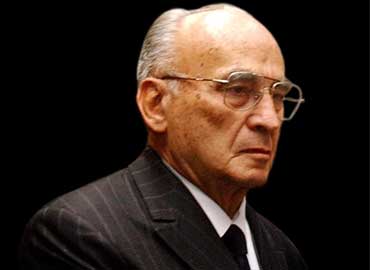Human rights activists reject acquittal of former Mexican president
 Mexico City - Human rights activists denounced Friday the acquittal of former Mexican president Luis Echeverria in connection with the Tlatelolco Massacre of October 2, 1968.
Mexico City - Human rights activists denounced Friday the acquittal of former Mexican president Luis Echeverria in connection with the Tlatelolco Massacre of October 2, 1968.
Echeverria, 87, was acquitted Thursday by a federal court in connection with the killings of students who had gathered for a peaceful demonstration at a square in Mexico City while he was the country's Interior minister.
The massacre claimed an uncertain number of lives, ranging from 30 people according to Mexican authorities to some 300 people according to human rights organizations.
Coming just ten days before the Olympics were to open in Mexico City, the bloodshed also heightened the tense tone before the 1968 athletic games, already beset by rising US racial tensions and growing anti-Soviet sentiment across eastern Europe.
"I think it is shameful, an insult to the Mexican people when everyone knows that he was involved," left-wing Senator Rosario Ibarra said in an interview.
Echeverria - who was Mexican president 1970-76 - had been under house arrest for two years in connection with this case.
In 1971, under his presidential mandate, 12 people were killed and 23 were injured in another massacre that Echeverria was acquitted of in 2005.
Human rights activists complained about the way the former president was tried.
"It is like saying that Francisco Franco committed a crime. Pinochet, Franco, Hitler were not (regular) criminals," said former student leader and current political analyst Marcelino Perello.
"What happened in Tlatelolco and on June 10, 1971 is still being investigated. We do not know who pulled the trigger, who killed the boys. We know nothing, there are no witnesses, there is no evidence, there is no legal weight," he said.
The court acquitted Echeverria for lack of evidence.
A special commission set up by Mexican authorities to investigate the massacre decades after it happened found no strong evidence in connection with the so-called dirty war that Mexican authorities engaged in for a decade from the mid-'60s to mid-'70s. (dpa)